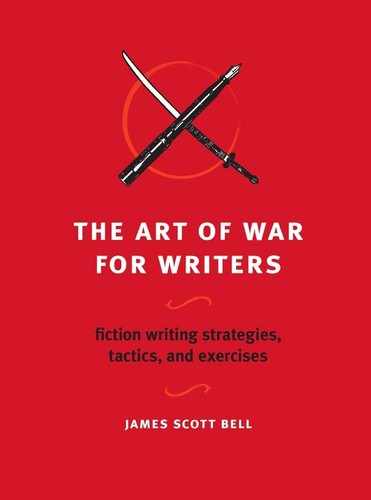
221
68
Your opening salvo is the
killer query letter.
Abraham Lincoln was once asked how long a man’s legs
should be. He reportedly replied, “Long enough to reach
the ground.”
Lincoln could have written a great query letter.
Yours should be just long enough to get the basic
information across with a ka-ching sound ringing softly
in the background. Often, you will be submitting only
the query letter at fi rst (depending on the guidelines of
a particular agent or editor), which is why ka-ching is all
important. The reader needs to know: Does this book
have a chance to sell copies? Is there a marketing hook
here? How many people will actually be interested in this
book once we spend the money to bring it out?
There’s lots of advice fl oating around on how to write
a query letter. Most of it says to begin with a short, in-
troductory paragraph about what you’re submitting and
why (e.g., the agent represents this type of novel). If you
do decide to start off that way, please do not do it like
this writer, who submitted to an agent the following:
“Dear Sir or Madam, Please bear with me, as I have a hard
time putting my thoughts into words.”
Z4273i_221-242.indd 221Z4273i_221-242.indd 221 9/24/09 11:21:36 AM9/24/09 11:21:36 AM

222
Of course, agents and editors see thousands upon
thousands of versions of the same letter each year. Here
is an alternative form that has the benefit of being a
slight relief from the same old: Skip the introductory
paragraph and get right to the plot. Why? Because that
is what agents, editors, and readers are looking for in a
writer: someone who can grab them from the start.
So grab.
This will make your basic letter three paragraphs
long. (Of course, you have included your name, address,
e-mail, and phone number at the top, as in a business
letter. And you have addressed this letter to the correct
person, and you know whether it’s a Mr. or a Ms. And you
have not used the person’s full name, as in Dear Joseph
Agent. That just looks strange. Follow this format even if
you are submitting via e-mail.)
the plot paragraph
Begin the plot paragraph with a one sentence logline
(sometimes called a tagline). That’s a catchy sentence that
sums up the entire plot in a pleasing way. Such as:
What if a shyster lawyer is magically forced to tell
nothing but the truth for an entire day?
A respected surgeon, wrongly convicted of mur-
dering his wife, must elude capture by a team of
U.S. Marshals until he fi nds the real killer.
Z4273i_221-242.indd 222Z4273i_221-242.indd 222 9/24/09 11:21:37 AM9/24/09 11:21:37 AM

223
A lone New York cop is the only hope for dozens
of hostages held by terrorists in a high rise build-
ing in LA.
Do you hear the ka-ching? You should. Unless you can
generate a logline that has it, you’re not ready to submit.
Work and rework the line until it sings. Try it out on
people. Excite total strangers with it. Would they be will-
ing to give your book a try based on the logline alone?
Whether you write literary or commercial fi ction, a
potent logline is a must.
The rest of the plot paragraph is a story overview.
Start your second sentence with the Lead character’s
name, occupation, and situation: [Lead character] is a [oc-
cupation or vocation] who [life situation]. This grounds the
paragraph in “story reality.” Then complete the para-
graph as if it were a thirty-second movie trailer:
Winter Massey is a former U.S. marshal who
has made too many enemies on both sides of the
law. Lucy Dockery is a judge’s daughter who’s never
had to fi ght for anything in her life. But now Lucy
and her young son have been kidnapped and sen-
tenced to die—unless her father agrees to set a vi-
cious criminal free. Massey is the closest thing to
salvation they have, but he doesn’t know that the
beautiful FBI agent who brought him into the case
may be playing a chilling double game—and that a
Z4273i_221-242.indd 223Z4273i_221-242.indd 223 9/24/09 11:21:37 AM9/24/09 11:21:37 AM

224
circle of treachery has begun to tighten around him.
For Lucy, the time has come to scratch and claw
for survival. For Massey, it’s time to stop trusting
the people he trusts most. Because in a storm of
betrayal, there’s only one way out.
1
Train yourself to write the plot paragraph by read-
ing the back cover copy of paperbacks and the editorial
descriptions off Amazon.com.
the background paragraph
Now give a paragraph with the title [don’t italicize this,
put it in CAPS as it is easier to read], genre, word count,
and relevant parts of your background. Solid writing
credits are good (more on that below). Experience in
the fi eld you’re writing about is good. Where you were
born and how much you love writing is not good. How
well you think you’ll do on TV interviews is horrible.
Worst of all is saying your book is the “next” anything
[James Patterson; Harry Potter] or is defi nitely going
to be on the big screen as a major motion picture, and
don’t you, Mr. Agent or Ms. Editor, want to get in on
that action?
Don’t waste any time on how you came to write the
story, what your grandmother and critique group think
of it, or how the publisher should market you.
1 From John Ramsey Miller’s novel Side by Side, adapted from his website. Used
by permission.
Z4273i_221-242.indd 224Z4273i_221-242.indd 224 9/24/09 11:21:37 AM9/24/09 11:21:37 AM

225
If you had some interaction with the agent or editor
at a conference, or heard her speak, or read something
good on her blog, you can mention that. Briefl y.
Legs just long enough to reach the ground:
[TITLE] is a 95,000-word legal thriller. I’ve been a
practicing lawyer for four teen years. This is my fi rst
novel. I heard you speak at the Greater Downey
Writers Conference and think this project will be
a good fi t for you.
The above is simple and gets the job done, which is
to spur the reader to the sample chapters. If, however,
your genre is somewhat creative (e.g., Amish-vampire),
you should help the reader by placing it in context. If
you can identify another successful novel, you can say
that yours is “in the style of
.” If you’re
off the beaten track, you can sometimes come up with
a combination of genres. This novel is like ’Salem’s Lot as if
written by Beverly Lewis.
Don’t gild this lily, though, by intimating you are on
that level or even better. Let the reader conclude that for
herself as she reads your chapters.
What about publishing credits and training? Don’t
include nonfi ction articles or poetry or anything else that
doesn’t show you know how to write a novel. Short stories
in prestigious journals are good. Previous novels (if not
Z4273i_221-242.indd 225Z4273i_221-242.indd 225 9/24/09 11:21:37 AM9/24/09 11:21:37 AM
..................Content has been hidden....................
You can't read the all page of ebook, please click here login for view all page.
